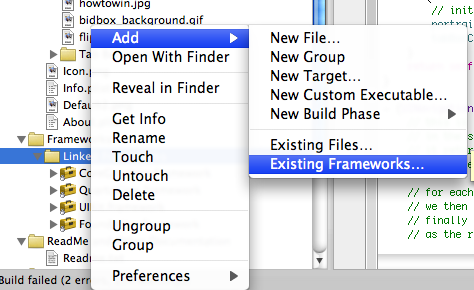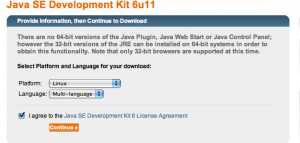I was recently adding some code to check for the availability of the network, so I can display an error to the user if unavailable.
I looked at the SeismicXML application and borrowed the following code:
// Use the SystemConfiguration framework to determine if the host that provides
// the RSS feed is available.
– (BOOL)isDataSourceAvailable
{
static BOOL checkNetwork = YES;
if (checkNetwork) {
// Since checking the reachability of a host can be expensive,
// cache the result and perform the reachability check once.
checkNetwork = NO;
Boolean success;
const char *host_name = “earthquake.usgs.gov”;
//const char *host_name = “localhost”;
SCNetworkReachabilityRef reachability =
SCNetworkReachabilityCreateWithName(NULL, host_name);
SCNetworkReachabilityFlags flags;
success = SCNetworkReachabilityGetFlags(reachability, &flags);
_isDataSourceAvailable = success &&
(flags & kSCNetworkFlagsReachable) &&
!(flags & kSCNetworkFlagsConnectionRequired);
CFRelease(reachability);
}
return _isDataSourceAvailable;
}
I wouldn’t compile unless I added the following import:
#import After adding this I still go 2 more errors, but these were a bit more cryptic. After some digging around I realized that I was missing the SystemConfiguration.framework framework. So here is what I did to add it. 2. Browsed to the file: /System/Library/Frameworks/SystemConfiguration.framework 3. Rebuilt the project and my error was gone. Undefined symbols:
"_SCNetworkReachabilityCreateWithName", referenced from:
-[TheElementsAppDelegate isDataSourceAvailable] in TheElementsAppDelegate.o
"_SCNetworkReachabilityGetFlags", referenced from:
-[TheElementsAppDelegate isDataSourceAvailable] in TheElementsAppDelegate.o
ld: symbol(s) not found
collect2: ld returned 1 exit status
1. I right click on “Frameworks” and choose: Add < Existing Framework


